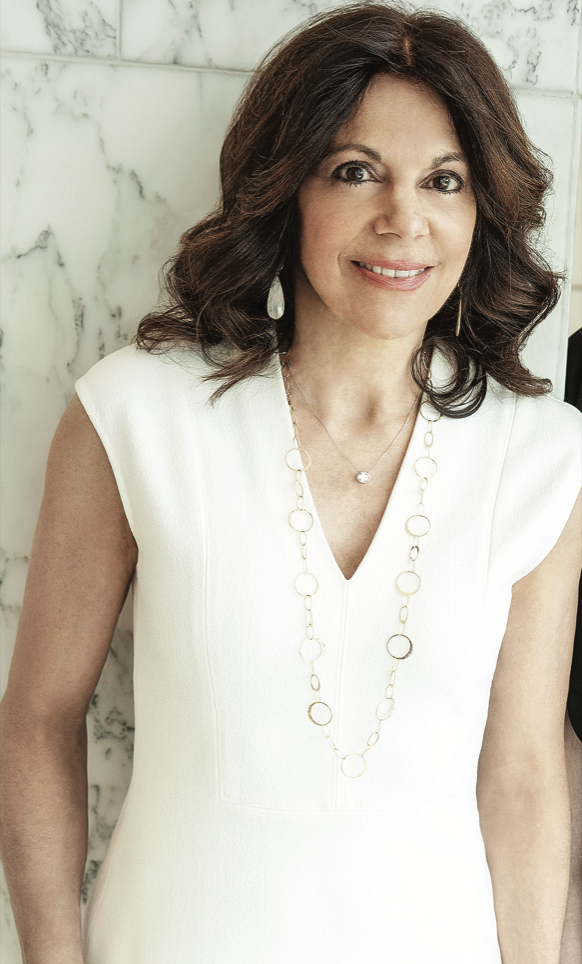Carla M. Calabrese of Calabrese Budner, arms readers with the five questions to ask when in the initial stage of the divorce process.
Divorce is never a situation one hopes to experience. But sometimes it’s inevitable. Advancing the concept it developed — Emotionally Intelligent Divorce® — the team at Calabrese Budner skillfully guides clients through the tumult of emotions that accompanies the end of a marriage. From Collaborative Divorce to litigation, the key to getting to the best place possible on Divorce Day 2 is having legal representation that decisively pursues your goals as a client, as well as choosing the best process to get you there. Carla M. Calabrese of Calabrese Budner, arms readers with the five questions to ask your lawyer when in the initial stage of the divorce process.

What is the best divorce process for me?
With more than 20 years under her belt handing Collaborative Divorce cases and as a Master Credentialed Collaborative Divorce attorney, Calabrese firmly believes: “If you can enter into a collaborative process, it will be the optimal option to get you to the best possible place on Divorce Day 2.” In Texas, there are two divorce processes: Collaborative Divorce and traditional litigation. Collaborative Divorce is a highly customized process, empowering clients to make informed decisions with the support and guidance of a specially trained team of divorce professionals including built-in neutrals. The process is entirely private with no court hearings, no cross-examining in front of a judge, and important decisions are made in the comfort of a conference room. Divorce litigation involves the more traditional approach to resolving legal matters, including formal discovery, depositions, court hearings, and trials. Calabrese Budner is unique in that its team skillfully handles litigated divorces as well as Collaborative Divorce matters.
In Calabrese’s lengthy years of Collaborative Divorce experience, almost all of her cases have successfully finalized in the process. Although cases also settle in litigation, Calabrese says that the experience and outcomes for her clients are much more satisfactory using Collaborative Divorce. “If your divorce lawyer hasn’t said anything to you about Collaborative Divorce or downplays the process,” she says, “get a second opinion.” Just because a lawyer doesn’t want or have the experience to handle a Collaborative Divorce matter, doesn’t mean it isn’t the right process for you.
Where do I start, regarding finances?
“First thing,” Calabrese says, “is to locate what you can regarding your finances. If a financial statement or financial planning report is available, bring that to your first meeting with your lawyer. If not, these papers should be requested early on in the process.”
The key to a successful financial outcome is prioritizing financial education during the divorce. “This is true not only for the spouse who knows less about the finances, but also for the spouse ‘in the know,’” Calabrese says. It’s a well-known adage that a confused mind says no. Educating the less knowledgeable spouse allows the divorce process to move more quickly and smoothly.
From experience, Calabrese has determined that financial education and information are much easier to attain in a Collaborative Divorce. With a neutral financial professional (FP) on every team, the process provides financial education not only to the spouse who may know less about the couple’s finances, but also to the more financially savvy spouse who may not know as much as a seasoned FP. The FP is also charged with providing financial transparency. Transparency and financial education are tenets of the Collaborative Divorce process.
Will my kids be okay after a divorce?
The single most important way to ensure your kids will be okay is to stay true to this edict throughout the divorce: Always remain parents first and divorcing spouses second. Collaborative Divorce provides the opportunity for parents to jointly engage a neutral child specialist (CS) to meet with their children to give the children a voice (not a vote) on how the divorce is impacting them. The CS then reports to the parents to ensure that the children’s needs are being addressed by the parents and taken into consideration in the divorce. This unique tool allows kids to feel heard and respected, and gives them some control when they are feeling tremendous loss and anxiety about the ending of their family as they know it.
When divorcing in a traditional litigation model, putting the children’s needs ahead of yours will ensure that they will be okay in the end, especially when there isn’t the benefit of the neutral child specialist — by not using them to get back at your spouse or as pawns to achieve other desired results (doesn’t take a rocket scientist to know how harmful that would be for kids), but by genuinely looking at each decision and thinking: What is best for my child first, over how will that decision impact me.
Will I be okay after a divorce?
Self-care has been the anthem for everyone these last two years, and it is highly important when going through a divorce. Calabrese says the best form of self-care for her clients is individual therapy. Divorce is emotional. Calabrese believes that “no person should go through a divorce without the support of a good therapist.” A therapist will help a divorce client secure their best position on Divorce Day 2.
In Collaborative Divorce, a neutral mental health professional (MHP) specializing in divorce coaching is part of the process. Calabrese explains, “Although the MHP does not technically provide therapy to divorce clients, given the MHP is a therapist, they have their finger on the pulse of the emotions that always accompany divorce and will manage them.” Calabrese believes that clients choosing Collaborative Divorce tend to get to the other side with less stress, a better post-divorce relationship with their spouse, and higher client satisfaction with the process.
How long will the divorce process take?
The length of divorce depends almost entirely on how emotional the situation is and how effective the lawyers and professionals are at managing those emotions, Calabrese says. We’ve all heard stories of divorces that drag on, with terms that can’t be agreed upon, and emotional waves rip through the process, driving costs and client stress through the roof. Collaborative Divorce, with its built-in MHP to help manage the stress, tends to take much less time than a traditional litigated divorce. Traditional litigated cases tend to take longer, with higher costs, both financially and emotionally.
Calabrese further believes that aside from choosing a more conducive process, the client can control the timing of a divorce by doing the following. First, always let your lawyer manage your expectations throughout the process. Second, always take actions that keep it as civil as possible, even when a decision feels like it isn’t as fair to you as you think it should be. Third, even though it seems counterintuitive (given that this is likely the most important and emotional legal matter of your life), view the divorce as a transaction, and strip away as much emotional attachment as is possible. “Following this advice,” Calabrese says, “will give you the best shot at your very best Divorce Day 2.
For more advice and to book an appointment, visit calabresebudner.com.





_md.jpg)







